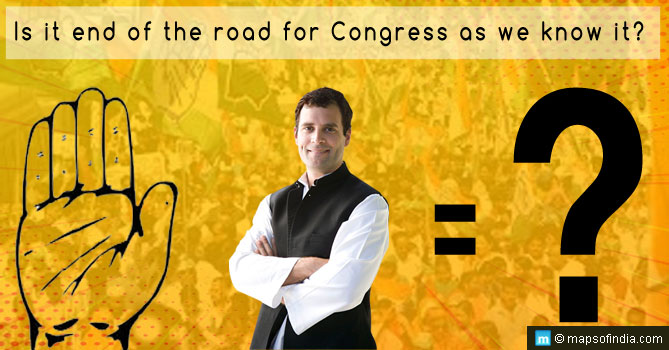2013, they say, has been a horrendous year for India’s foreign policy. Going by the elaborate columns in news dailies, it gives one a feeling that India has suddenly cocooned itself with deliberate inaction instead of spreading out its wings of thoughtful decision-making. But looking back hardly helps us in moving forward. Let’s keep 2013 on the backburner and think of plausible steps that could be taken in 2014.
It should be said at the onset that India is walking on tightrope and its pressing domestic issues are not to be compromised to revive its international relations. The country would do itself good if it stays focused on South Asian neighbours.
Our eastern neighbour Bangladesh has seen much violence and political instability in the recent past, which is naturally going to affect India’s interest. There’s still time for New Delhi to get certain issues resolved. For the sake of its own security it must ratify the Land Boundary Agreement. That will considerably reduce cases of smuggling and human trafficking. Water-sharing agreement is long overdue. Indian and Bangladeshi officials need to sit down and contemplate on the way ahead.
Our southern neighbourhood also cries for attention. Sri Lanka has been let down by India on several occasions. New Delhi has persistently voted against Colombo at global forums and couldn’t make any headway about the fishermen issue. It was evident that India’s policy on Sri Lanka was dictated by the pressure groups comprising Tamil diaspora. It is on this note that our PM must visit the island nation at the earliest and sow the seeds of credibility. The bilateral economic agreement hasn’t seen any conclusion as yet, which should also be on the priority list.
On the western front, Pakistan has eschewed our every allegation of supporting home-grown terrorism. That’s too serious an issue to be dealt in a year. Till then the least we can do is to improve surveillance on the India-Pakistan border and send across a message that it would be mutually beneficial to broker a deal pertaining to regional peace and growth.
Afghanistan has often remained an afterthought for India. It can’t afford to do that anymore. As US troop’s withdrawal from Afghanistan approaches near, the country can expect increased terrorist activity, which will certainly not augur well with India. We ought to be more aggressive when it comes to providing military training and assistance to Afghan Army. Simultaneously, we can incentivize Indian business to invest in Afghanistan.
In 2014, India needs to think seriously about improving connectivity between Myanmar and North East. The Seven Sisters’ Corridor is a crucial project that can help India develop linkages with Myanmar and bolster development in our North East as well. It was long pending on the government’s agenda to establish border trading posts on the India-Myanmar border. It’s time we did that.
Our sweet-and-sour relation with China needs to be sweetened a bit in 2014. If New Delhi can accommodate boldness in foreign policy, it can certainly ease restrictions on Chinese companies planning to build infrastructure in India as China is also opening up to larger Indian exports. That’s a recipe for a sustainable trade relationship.
We need to re-build our bilateral ties with the US through “technology and innovation linkages.” Besides resolving the visa issue, both the countries can huddle together and develop an India-U.S. Technology Agenda, involving the private players of both the nations.
Latin America has been neglected for long. New Delhi can kick start this year with a series of negotiations for Free Trade Agreements with countries such as Colombia, Mexico and Peru. Our Foreign Ministry needs to mull over the fact that we are yet to be the member of Inter-American Development Bank (IDB), which disburses billions of dollars annually for development projects in Latin America. We lose out heavily because the contracts are open only for member countries.
India must consider 2014 as a wonderful opportunity to demonstrate leadership and walk the talk on vital global issues.
Read More:
Government–Naga Peace Accord
Bilateral Issues India Needs to Resolve
India–Bangladesh Enclaves
Nuclear Liability Law: What’s the Big Deal?
Land Acquisition Laws in India and the Duplicitous Deals
How Can India Benefit From Becoming a Member of SCO?
India’s strategic ties with Vietnam on the rise
India’s Foreign Policy Roadmap
Why Modi government is important for China, US




